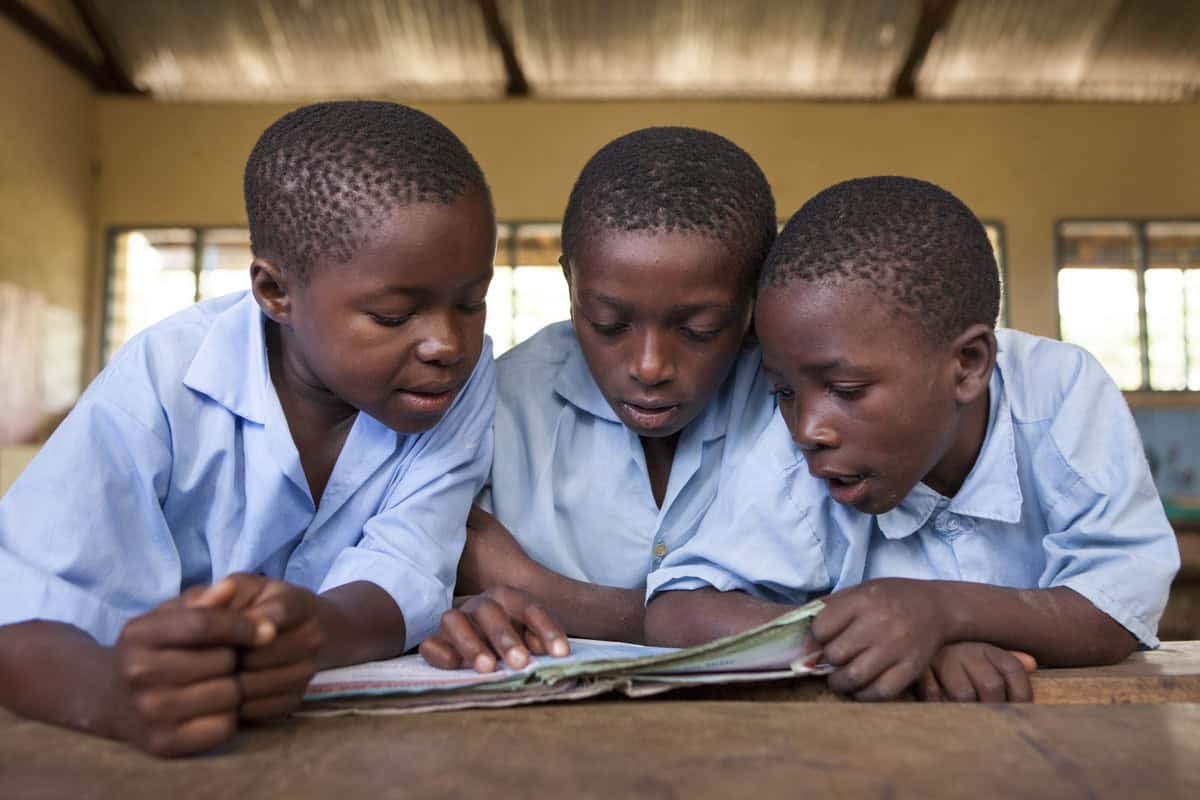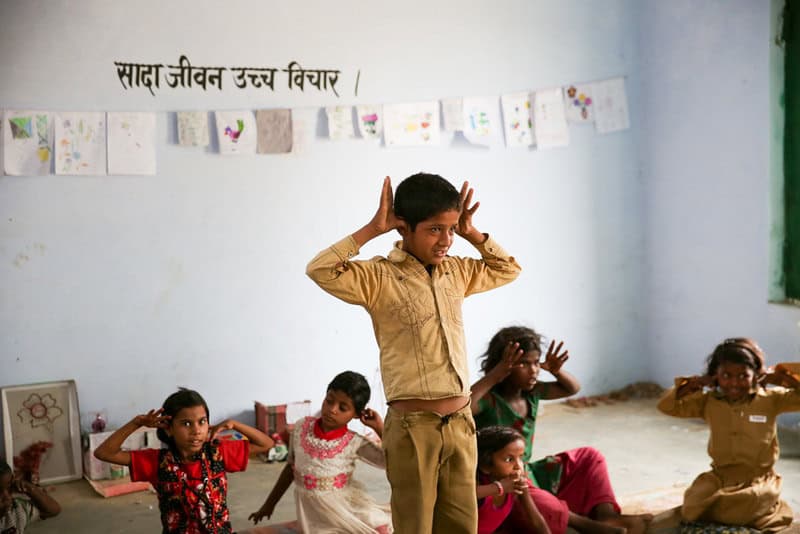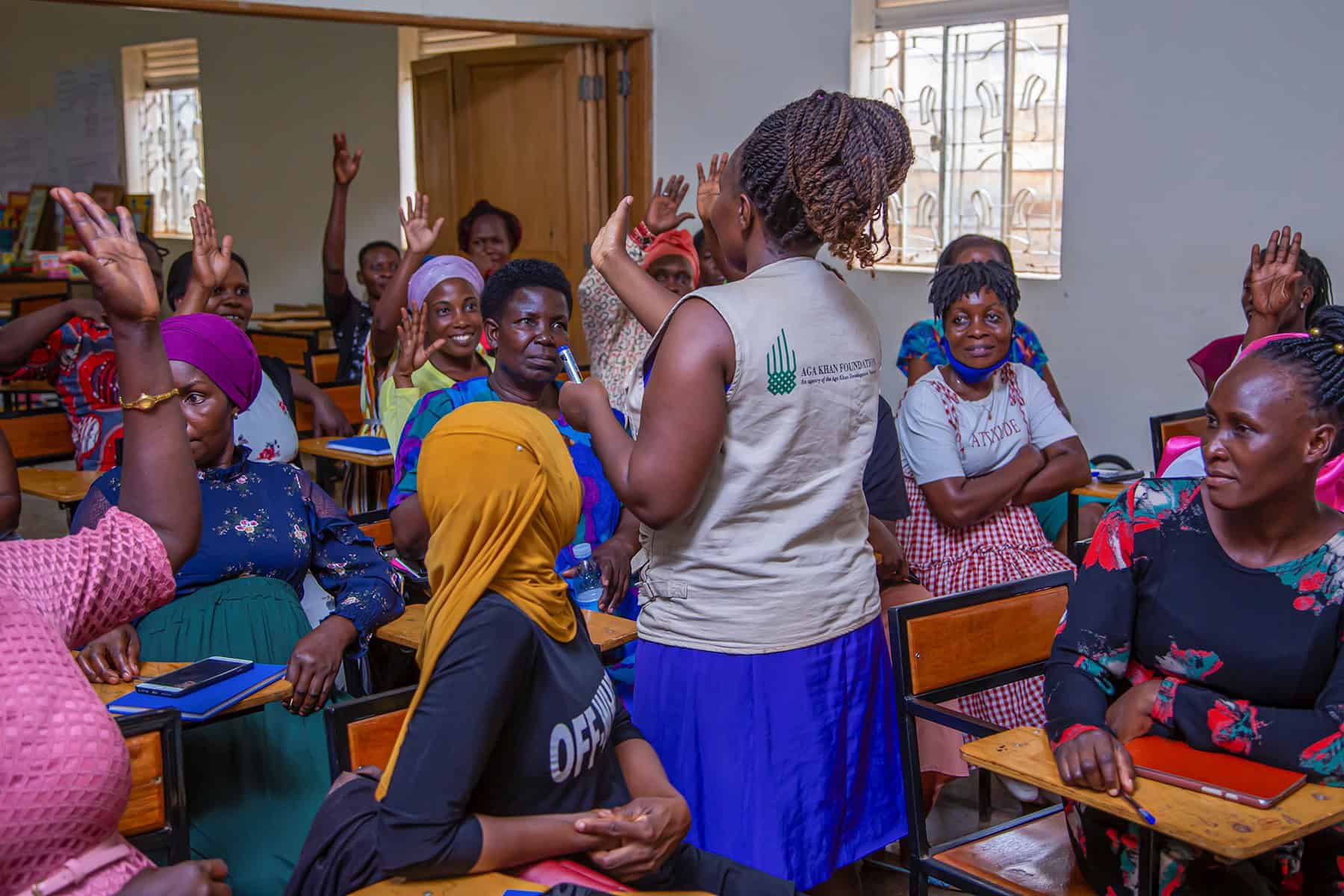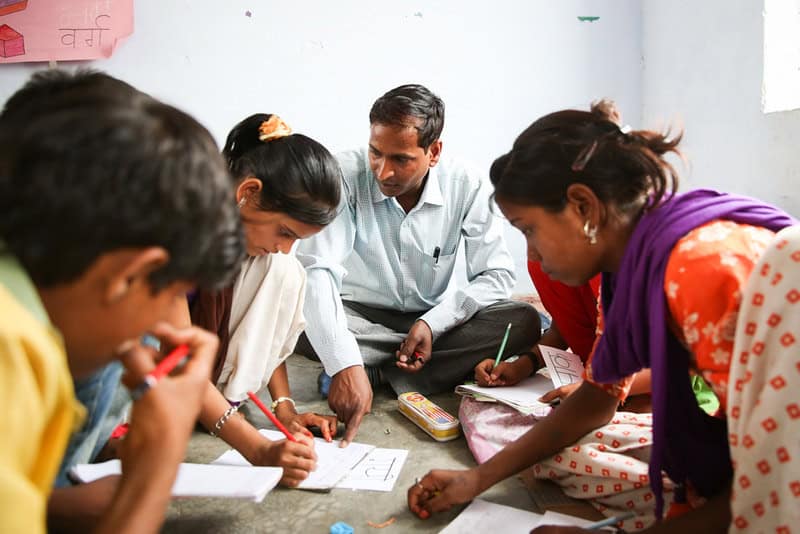Schools2030 is thrilled to announce the launch of an ambitious new Global Learning Differences workstream designed to enhance the inclusivity of our programme. Generously funded by Oak Foundation, this initiative focuses on improving outcomes for learners with disabilities and learning differences. In collaboration with the global disability organisation Sightsavers, this three-year project adopts a multi-level approach.
Sightsavers will work closely with Aga Khan Foundation (AKF) teams to build teacher capacity in supporting children with learning differences through pedagogy and assessment, strengthen community engagement, and foster opportunities that support disability-inclusive education. The initiative will begin in India and Uganda, with plans to expand to other Schools2030 countries.
This work unfolds in a context where governments are increasingly committing to disability-inclusive education. However, research led by Schools2030 highlights a substantial gap between policy and practice. This collaboration among AKF, Sightsavers, organisations of persons with disabilities, civil society, and governments aims to close that gap by improving the implementation of disability-inclusive education, aligning with priorities laid out in the commitments of the global community.

Background to the Learning Differences Workstream
From its inception, Schools2030 has prioritised targeting remote regions where children face multiple layers of marginalisation. By working closely with teachers, we aim to bridge learning gaps through Human Centred-Design and innovative pedagogical approaches. Additionally, we promote holistic skills to nurture the overall development of every child. Our ethos emphasises context-appropriate, learner-centred teaching, equipping teachers to use different methods to meet the needs of their students.
We’re proud to continue our partnership with the Learning Differences Programme at Oak Foundation, one of Schools2030’s founding donors. This collaboration will further enhance our efforts to create learning environments that accommodate all learners, including those with learning differences.
This workstream stems from in-depth research conducted by Schools2030 in 2022 to assess how inclusive education policies are interpreted and applied across classrooms in our ten programme countries. We sought to understand whether teaching and learning approaches in the classroom are inclusive of children with learning differences and disabilities.
Our consultations with teachers, Schools2030 staff, and assessment experts revealed a stark reality: while disability-inclusive education is a well-documented policy priority, its operationalisation remains inconsistent. Limited awareness, insufficient funding, resource constraints, and broader socio-economic challenges hinder progress.
The findings were detailed in our report, “Understanding Learning Differences Across Schools2030 Contexts” which offered five key recommendations for advancing inclusive education:
- Strengthen teacher training programmes.
- Enhance parental and community engagement.
- Increase investment in human resources, infrastructure, and school equipment.
- Expand data collection, evidence building, and research initiatives.
- Develop robust diagnostic systems.
Through our partnership with Sightsavers, we are committed to addressing these recommendations as we progress through Schools2030’s next phase and renewed mission to enhance education for all students.
Learning Differences and Schools2030 Phase 2
Building on Schools2030’s launch phase (2020-2023), Phase 2 (2024-2027) has a strong focus on gathering evidence of impact and identifying pathways to scale the model. Learning differences are an important dimension of this new strategy, which focuses more centrally on how we can ensure disability-inclusive approaches are integrated as part of scaling efforts. Thus, it seeks practical, implementable ways for teachers and schools to support all students, including those with learning differences.
What we need, and what this exciting Sightsavers-Schools2030 partnership hopes to achieve, is evidence on how we practically implement the desired changes that are already emerging, and how we promote this at a classroom and school level. By commencing the work in Uganda and India, we aim to help support efforts within specific education system contexts, in a way that can then be used and adapted in other countries. There is a huge need in both these initial ‘pilot’ countries, to help move the trajectory forward in putting learning differences support into practice.
In India, for example, it is only relatively recently that learning disabilities have been officially recognised and researched, even though over 10% of the student population are estimated to have a learning disability. However, now India’s national flagship scheme for school education, ‘Samagra Shiksha’, aims to ensure quality education for all from pre-school to senior secondary stage in accordance with Sustainable Development Goal 4. India’s current (2020) Education Policy emphasises a need for content on how to teach children with specific disabilities to become integral to all teacher education programmes and proposes adopting flexible curricula and appropriate assessment guidelines. This Schools2030 work stream will now be able to support the country’s ongoing progress in putting policy into practice. We hope this project can help change gear to proactively promote effective responses to these challenges and increase the level of inclusion and provision.

In Uganda, the World Bank estimates that 2.5 million children in Uganda have a disability that hinders their access to education, and in Schools2030 report on Learning Differences respondents felt that, whilst there was a lot of talk about inclusion, it wasn’t materialising in practice at country level. Since 2011 the country developed a Special Educational Needs (SEN) and Inclusive Education Policy, although this is yet to be ratified, and there was distribution of supplementary guidelines to schools on adapting curriculum for learners with SEN. In 2014 a SEN Programme was initiated, including an early identification assessment and intervention model for children with disabilities, as well as the upskilling of teachers in SEN. However, as in India, support and guidance in practical implementation has not been sufficiently in place for these approaches to become the norm, an understandable challenge in large mainstream classes. We’re excited for Sightsavers to support in many areas of need identified by teachers, including addressing stigma, raising awareness of disability and teacher training on inclusive pedagogy.
Welcoming Sightsavers, Schools2030’s Global Learning Differences Partner
Sightsavers will join as Schools2030’s Global Learning Differences partner over the next three years. As a leading global actor in disability inclusion and inclusive education, we bring expertise to address some of the key recommendations highlighted in the recent Schools2030 report.
With 30 years of experience in inclusive education across Africa and Asia, Sightsavers works with schools, communities, governments and organisations of people with disabilities to ensure children with disabilities and other special educational needs can learn and play alongside their peers, from pre-school through to tertiary education. Sightsavers supports ministries of education and other education service providers to identify and remove the barriers that prevent children with learning differences from accessing high quality education.
Sightsavers will support Schools2030 to expand work on learning differences and deliver inclusive education across four workstreams:
1. Teacher capacity development – supporting teachers to develop inclusive, gender responsive teaching and learning approaches as well as disability inclusive measurement and identification tools.
2. Community engagement – guiding on strategies and approaches for increasing the meaningful engagement of all stakeholders in understanding learning differences and disability.
3. Policy engagement – working directly with government systems to embed change to promote inclusive education.
4. Monitoring, evaluation and learning – developing a plan in consultation with partners and other stakeholders to monitor and evaluate the impact of each workstream.
Sightsavers will work closely with Aga Khan Foundation teams at country and global level. At local level teams will collaborate to design and/or adapt a suite of innovative and sustainable approaches to include children with learning differences and disabilities in mainstream schools. Interventions developed in Uganda and India will be trialled and adapted to ensure that they are transferable across other Schools2030 geographies.

It is our hope that the work undertaken through this partnership will have a ripple effect at individual, community and systemic levels. Schools2030 teachers will increase their capacity to deliver and integrate inclusive classroom practices. Parents and communities will develop their awareness and understanding of the value of inclusive education and how they can support their own children. Official bodies and education service providers will be positively impacted through the provision of clear guidance on good practice in including children with learning differences in mainstream classrooms.
This will trigger a virtuous circle which will help Schools2030 to achieve its goal to equip young people with the knowledge, skills, attitudes and values they need to become contributing and thriving members of their societies in an inclusive way in the long term.
Looking to the Future with Oak Foundation
Oak Foundation is proud to support the Schools2030 Global Learning Differences workstream. As a long-time grant maker for learners with disabilities and learning differences, we recognise the critical importance of this initiative. Oak’s support underscores our commitment to ensuring that every child, regardless of their abilities, has access to quality education.
Through our grant making portfolio, we have learned that sustainable change requires a multi-faceted approach. Effective teacher training, community engagement, and robust frameworks are essential components. Our experiences have shown that when educators are equipped with the right tools and knowledge, and when communities are actively involved, the barriers to education can be significantly reduced.
Looking ahead, we are excited about the potential impact of this workstream. By supporting School2030’s collaboration with Sightsavers and leveraging their expertise, we are pleased to support this work. This partnership will not only enhance the inclusivity of Schools2030 but also provide valuable insights and scalable models that can be adapted in other contexts. We believe that this initiative will pave the way for an education system that benefits countless learners worldwide.
